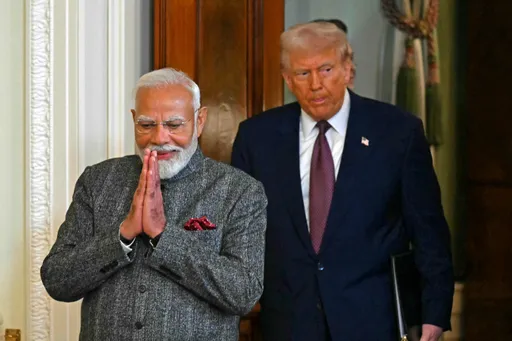By Dayo Yusuf
There's a wisdom-laden Swahili proverb couched in humour — "Ukiona mwenzako anyolewa, chako tia maji" — that loosely translates to "If you see your friend's head being shaved, you better start preparing yours".
The universal relevance of this witty exposition of how to spot an impending challenge was in evidence recently when a Ghanaian lawmaker urged his colleagues in parliament to tread carefully lest they face public wrath of the kind that has singed Kenya since late June.
"The Kenyan public is beating up MPs for passing bad laws. Mr Speaker, it's a serious matter. I saw our counterparts beaten to a pulp," he said.
Amid murmurs and giggles in the hall, the MP continued to warn his colleagues that this was no laughing matter.
Scenes of angry youth in Kenya storming the parliament building, burning down sections of the county hall and sending elected representatives scampering for safety have been a wake-up call for countries across the continent.
Call to action
Since the onset of the youth-led agitation against new tax provisions in the Kenya Finance Bill, social media has been awash with messages of caution for governments walking a similar tightrope.
Analysts liken the potential impact of the protests against proposed tax hikes in Kenya to the Arab Spring.
"After being elected, many public representatives seem to forget they were elected to serve and not to rule," Ade Daramy, a political analyst from Sierra Leone, tells TRT Afrika.
"It isn't just a Kenyan thing; people want to be listened to and consulted. The idea is not to make monumental decisions on your own."
Analysts see the worm turning in countries where governments don't have an ear to the ground.
Some long-running uprisings in some African countries started with citizens complaining that their governments were ignoring them, says Wamoto Wabete, a retired district commissioner in Uganda.
Drawing the line
"It's a two-way lesson. Governments should acknowledge that they are to serve their people, and the people should understand that the government was legally elected to represent them,'' Wamoto tells TRT Afrika.
In Kenya's case, caution on both sides is the buzzword after the initial upheaval.
"We need to be careful when drawing comparisons," explains Ade. "Kenya's situation is different. The issues may be similar, but the approach and resolutions required could differ."
Grievances range from style of governance and level of public freedom to use of police.
"We saw what happened in Senegal when young people tried to demonstrate against the regime. There was a crackdown that led to many deaths," Ade tells TRT Afrika.
Youth in politics
He believes this is an opportune time for young people to become more involved in their respective countries' politics.
"I believe they are interested in politics, based on data. If more young people joined the youth wings of political parties or even started their parties, they would make a difference."
Since the start of the anti-tax protests in Kenya on June 25, President William Ruto has conceded to some of the Gen Z's demands.
"It's a good sign that the government is listening to the people and expressing willingness to give them some of what they want. But the protestors should also know when enough is enough. You do not have to push your protests beyond reason because then you lose credibility," says Wamoto.
Many young people across Africa cheered as the Kenyan protests gained momentum.
But Ade warns that such protests should be the last option, kicking in only when diplomacy fails.
"I am from Sierra Leone and have seen the bad side of protests. I caution people not to wish for these things. Violence always begets violence," he tells TRT Afrika.
➤ Click here to follow our WhatsApp channel for more stories.




























